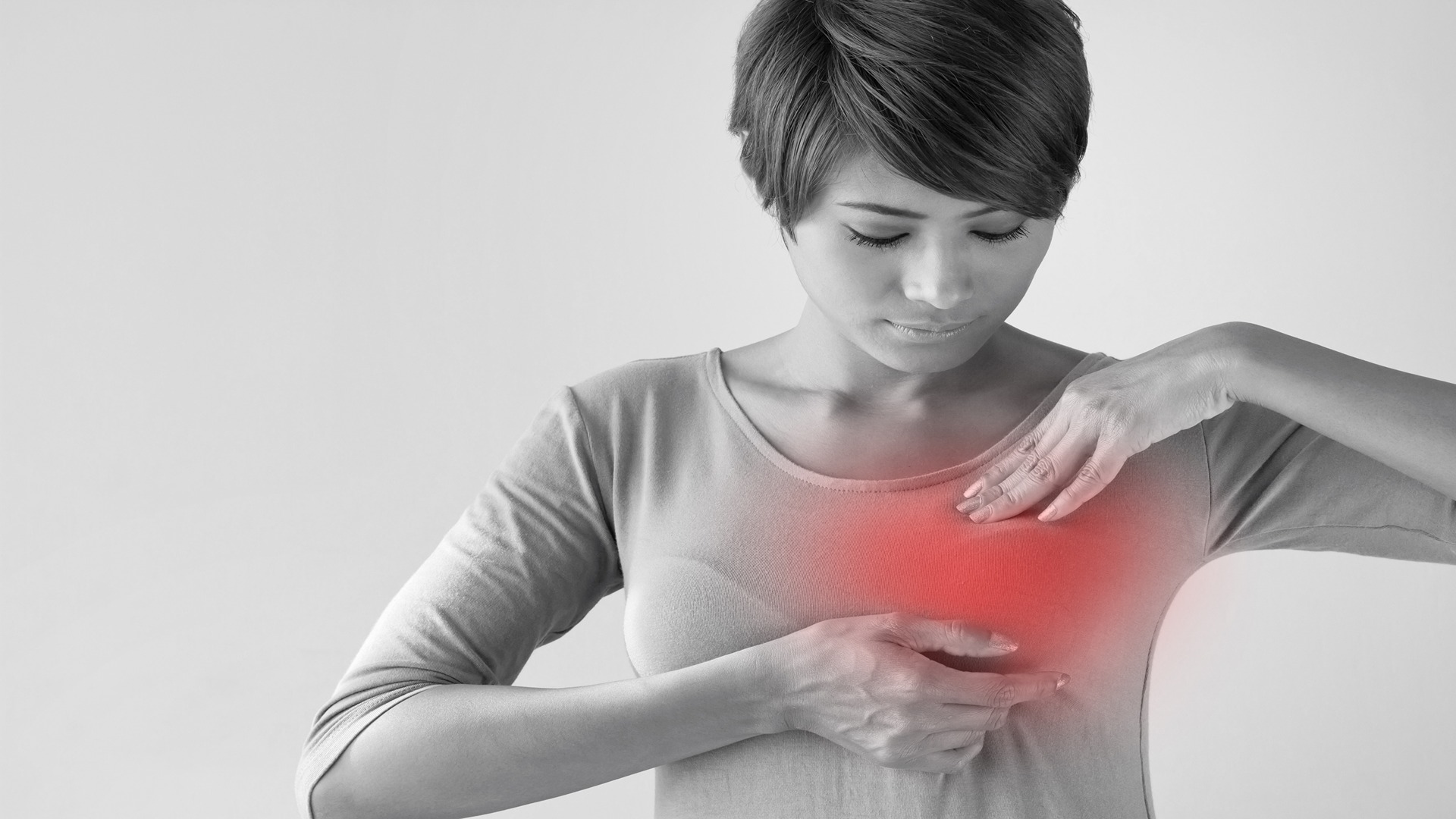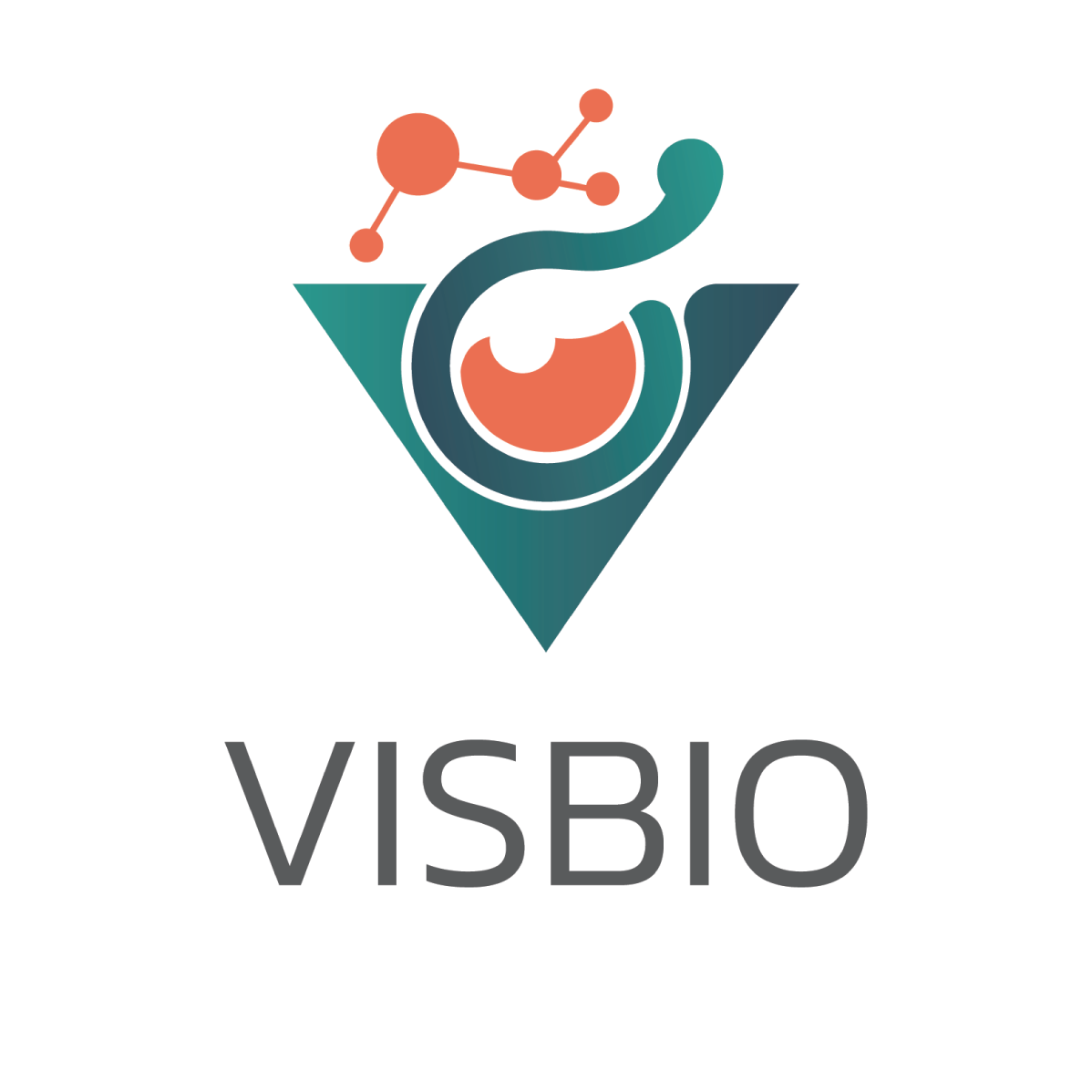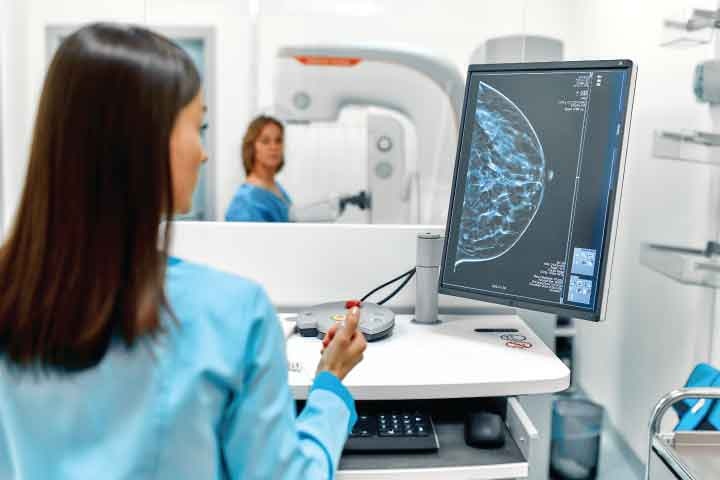
Service Information for Testing the Efficacy of Breast Cancer Cell Line (MCF-7) Inhibition
VISBIO Co., Ltd. offers services to test and analyze the efficacy of breast cancer cell line (MCF-7) inhibition in a laboratory setting. This testing involves the cultivation of cancer cells under 2D cell culture conditions. This method is suitable for in-depth research aimed at developing herbal products with the ability to inhibit breast cancer cells.
Breast cancer is the most commonly diagnosed cancer among Thai women, comprising up to 38% of all cancer cases in women. The incidence of breast cancer continues to rise annually, and various risk factors contribute to its development, including early onset of menstruation (before age 12), late menopause (after age 55), nulliparity or childbirth after age 30, long-term hormone replacement therapy, and a family history of breast or ovarian cancer. Presently, there is a development of herbal products, herbal extracts, dietary supplements, or medications for nourishing or combating breast inflammation. These products can be tested at the cellular level regarding their toxicity to cancer cells, inhibitory efficacy, or the appropriate concentration for inhibiting breast cancer cell line (MCF-7).
Get to Know Breast Cancer
Information from the National Cancer Institute in 2021 reveals that breast cancer is the most common cancer among Thai women, accounting for up to 38% of all cancer cases in women. The incidence of breast cancer continues to rise each year. Every woman has risk factors for developing breast cancer.
These risk factors include starting menstruation at an earlier age (before 12 years old), experiencing menopause at a later age (after 55 years old), not having children or having children after the age of 30, long-term hormone replacement therapy, and having a family history of breast or ovarian cancer.
Breast cancer originates from abnormal cell division in the breast’s milk ducts or lobules, leading to the formation of a tumor. Without proper treatment, cancer can grow and spread to the lymph nodes near the breast and eventually to other organs, such as the lungs, liver, brain, and bones, posing a significant threat to the patient’s life. In most cases, signs of breast cancer involve abnormalities in the breast, including discovering a lump, uneven breast size, nipple discharge, nipple inversion, skin changes like redness, thickening, or dimpling, itching, and discomfort, as well as feeling pain and discovering a lump in the armpit.
Breast cancer cells (MCF-7)
Breast cancer cells (MCF-7) are human-derived breast cancer cells commonly used in the field of cancer biology for studying the biology of breast cancer. These cells are a type of breast cancer cell line, and research often focuses on understanding their behavior and anti-cancer properties. Studies involve investigating how these breast cancer cells respond to anti-cancer agents, either outside of cells or within Well Plate in 2D Cell or 3D cell culture with cell culture media.
Testing Method for Breast Cancer Cells (MCF-7) in Cancer Cell Culture
Currently, there is a development of herbal products, extracts from herbs, dietary supplements, or medicines for the purpose of nurturing or combating inflammation in breast tissue. The effectiveness of these products can be tested at the cellular level, involving their toxicity to cancer cells, inhibitory properties, or appropriate concentration to inhibit breast cancer cells of the MCF-7 type.
The testing process involves taking cells or tissues directly from living organisms and culturing them under controlled environmental conditions to promote the growth, division, or multiplication of cancer cells. This closely resembles cancer cells that are transplanted into laboratory animals or studied within a patient’s body. Cellular level testing is conducted before proceeding to animal testing or subsequent clinical trials.
Figure demonstrating an example of 2D cell culture in an in-vitro setting used for studying cell biology and cancer research (Gaebler et al., 2017).
Testing the Inhibitory Efficiency of Breast Cancer Cells (MCF-7) Using the MTT Assay.
Testing the inhibition efficiency of breast cancer cells (MCF-7) cultured at the cellular level or in Well Plate using the Methyl tetrazolium 3-[4,5-Dimethylthiazol-2-yl]-2,5-diphenyltetrazolium bromide (MTT) assay. The MTT assay is a method for testing the inhibition efficiency of cancer cells in microplates based on the enzymatic activity of dehydrogenases within the mitochondria. The yellow dye of MTT (3-[4,5-Dimethylthiazol-2-yl]-2,5-Diphenyltetrazolium Bromide) is converted into purple formazan.
Thus, the formazan is used to indicate cell viability. Dead cancer cells will appear clear, without color, while living cancer cells will develop purple formazan inside the cells. When dissolved in a solvent, such as DMSO, a blue-purple solution is obtained, which can be measured for absorbance using a spectrophotometer. This measurement is directly proportional to the amount of living cells. The percentage of cancer cell inhibition can then be calculated compared to standard substances, and the results can be reported as the percentage of cancer cell inhibition or the concentration at which 50% inhibition (IC50).
Literature:
- ตรวจวินิจฉัยมะเร็งเต้านม, ศูนย์ถันยรักษ์ โรงพยาบาลศิริราช
- รู้จักมะเร็งเต้านม, มหาวิทยาลัยมหิดล คณะแพทยศาสตร์ศิริราชพยาบาล ศูนย์การแพทย์กาญจนาภิเษก
- แผนยุทธศาสตร์สถาบันมะเร็งแห่งชาติ, สถาบันมะเร็งแห่งชาติ กรมการแพทย์ กระทรวงสาธารณสุข, พ.ศ. 2562 – 2565
- ทะเบียนมะเร็งระดับโรงพยาบาล, สถาบันมะเร็งแห่งชาติ กรมการแพทย์ กระทรวงสาธารณสุข, พ.ศ.2564
- Gaebler M, Silvestri A, Haybaeck J, Reichardt P, Lowery CD, Stancato LF, et al. Three-dimensional patient-derived In vitro sarcoma models: promising tools for improving clinical tumor management. Front Oncol 2017; 7: 203.





